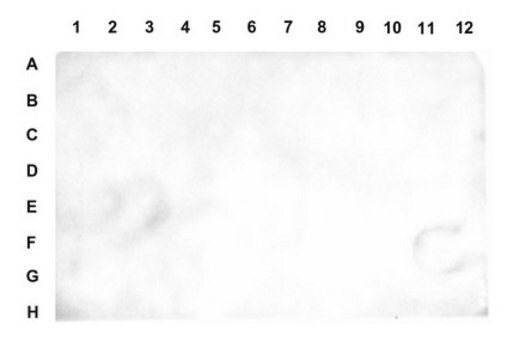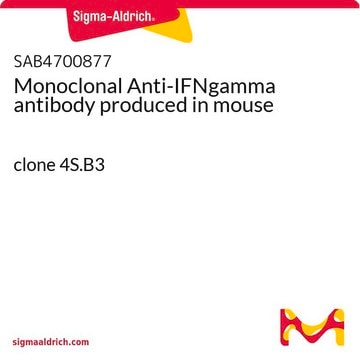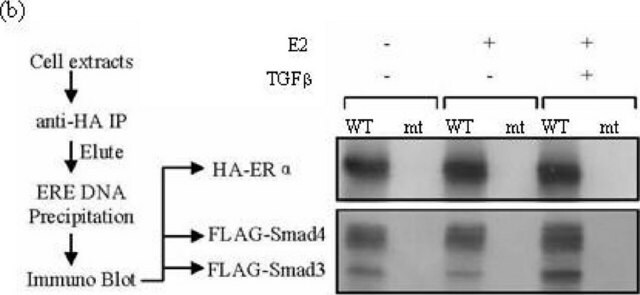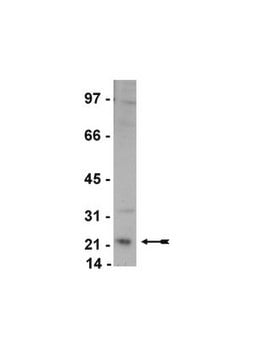06-1328
Anti-Themis Antibody
from rabbit, purified by affinity chromatography
别名:
thymocyte selection associated, thymocyte selection pathway associated, chromosome 6 open reading frame 190, chromosome 6 open reading frame 207, protein THEMIS, Thymocyte-expressed molecule involved in selection
登录查看公司和协议定价
所有图片(4)
About This Item
UNSPSC代码:
12352203
eCl@ss:
32160702
NACRES:
NA.41
推荐产品
生物来源
rabbit
质量水平
抗体形式
affinity isolated antibody
抗体产品类型
primary antibodies
克隆
polyclonal
纯化方式
affinity chromatography
种属反应性
mouse
种属反应性(根据同源性预测)
rat (73% sequence homology)
技术
flow cytometry: suitable
immunoprecipitation (IP): suitable
western blot: suitable
NCBI登记号
UniProt登记号
运输
wet ice
靶向翻译后修饰
unmodified
基因信息
mouse ... Themis(210757)
一般描述
Thymocyte-expressed molecule involved in selection (Themis) is a highly conserved protein that has been shown to serve a key role in regulating T-cell development through TCR signaling, especially through the moderation of phosphorylation and calcium influx. It is also a critical component in the later stages of thymocyte development through the regulation of positive/negative T-cell selection, and is required for integration and maintenance of signals necessary to T-cell lineage commitment and maturation. Themis expression is observed in thymus, spleen, thymocytes between Pre-TCR and checkpoints positive in selectin, and at low levels in mature T-cells.
特异性
This antibody recognizes Themis at the C-terminus.
免疫原
KLH-conjugated linear peptide corresponding to the C-terminus of mouse Themis.
应用
Detect Themis using this Anti-Themis Antibody validated for use in WB, FC.
质量
Evaluated by Western Blot in mouse thymocyte tissue lysate.
Western Blot Analysis: 0.1 µg/mL of this antibody detected Themis in 10 µg of mouse thymocyte tissue lysate.
Western Blot Analysis: 0.1 µg/mL of this antibody detected Themis in 10 µg of mouse thymocyte tissue lysate.
目标描述
~72 kDa observed.
UniProtKB/Swiss-Prot Q8BGW0 (THMS1_MOUSE) entry describes 5 isoforms produced by alternative splicing: Isoform 1 at 72.780 kDa, Isoform 2 at 69.544 kDa, Isoform 3 at 68.293 kDa, Isoform 4 at 59.082 kDa, and Isoform 5 at 30.040 kDa
UniProtKB/Swiss-Prot Q8BGW0 (THMS1_MOUSE) entry describes 5 isoforms produced by alternative splicing: Isoform 1 at 72.780 kDa, Isoform 2 at 69.544 kDa, Isoform 3 at 68.293 kDa, Isoform 4 at 59.082 kDa, and Isoform 5 at 30.040 kDa
分析说明
Control
Mouse thymocyte tissue lysate
Mouse thymocyte tissue lysate
其他说明
Concentration: Please refer to the Certificate of Analysis for the lot-specific concentration.
未找到合适的产品?
试试我们的产品选型工具.
储存分类代码
12 - Non Combustible Liquids
WGK
WGK 1
闪点(°F)
Not applicable
闪点(°C)
Not applicable
Mukul Prasad et al.
Cellular & molecular immunology, 18(9), 2249-2261 (2020-11-13)
Themis is a T cell lineage-specific molecule that is involved in TCR signal transduction. The effects of germline Themis deletion on peripheral CD4+ T cell function have not been described before. In this study, we found that Themis-deficient CD4+ T
Namrata Gautam et al.
Life science alliance, 6(12) (2023-09-23)
Themis is important in regulating positive selection of thymocytes during T cell development, but its role in peripheral T cells is less understood. Here, we investigated T cell activation and its sequelae using a tamoxifen-mediated, acute Themis deletion mouse model.
Themis sets the signal threshold for positive and negative selection in T-cell development.
Fu, G; Casas, J; Rigaud, S; Rybakin, V; Lambolez, F; Brzostek, J; Hoerter, JA; Paster et al.
Nature null
Joanna Brzostek et al.
Nature immunology, 21(2), 186-198 (2020-01-15)
T cell homeostasis and functional responsiveness require signals from self-peptide-major histocompatibility complex (self-pMHC) and cytokines, but the mechanisms controlling this signal integration are unknown. Using a conditional deletion of the T cell lineage-specific protein Themis, we show that Themis is
Differential function of Themis CABIT domains during T cell development.
Okada, T; Nitta, T; Kaji, K; Takashima, A; Oda, H; Tamehiro, N; Goto, M; Okamura et al.
Testing null
我们的科学家团队拥有各种研究领域经验,包括生命科学、材料科学、化学合成、色谱、分析及许多其他领域.
联系技术服务部门








